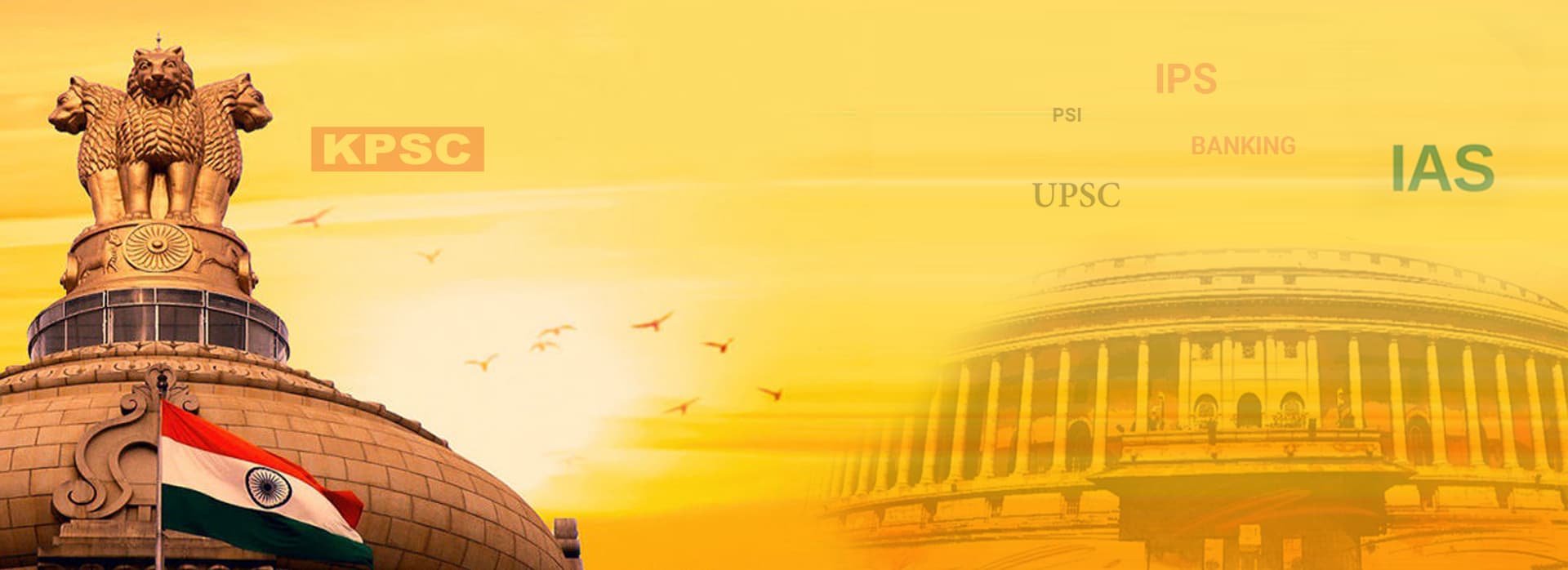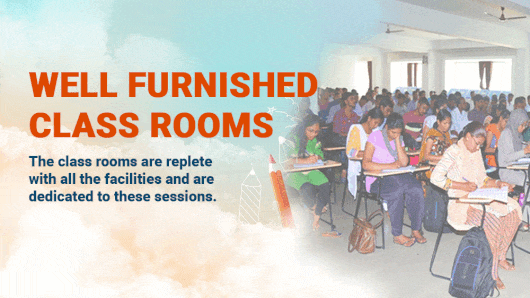IAS Exam Pattern
The pattern of the UPSC examination is officially divided into three stages Prelims, Mains, and Personality Test. As per the IAS exam pattern, candidates who clear the Prelims are eligible for Mains, and candidates who clear the Main reach the interview stage.

STAGE 1: PRELIMS
- The Preliminary stage consists of two papers
- Both the papers comprise objective type questions with multiple choice answers
- The prelims examination is a qualifying stage to filter candidates for the mains exam.
- Marks secured at this stage are not counted towards the final merit list, though candidates have to prepare well for this exam as cut-offs are unpredictable and depend on the average score every year.
| UPSC PRELIMS EXAM PATTERN | ||||
|---|---|---|---|---|
| SL.NO | NAME OF THE PAPER | NATURE OF THE PAPER | DURATION OF THE EXAM | MARKS |
| 1 | Paper 1 – General Studies | 2 Hours | 200 Marks | |
| 2 | Paper 2 – General Studies (CSAT) | Qualifying Nature | 2 hours | 200 Marks |
| TOTAL | 200 Marks | |||
- Marks obtained in the Preliminary Examination by the candidates who are declared qualified for admission to the Main Examination will not be counted for determining their final order of merit Selection of candidates for Main Examination.
- The number of candidates to be admitted to the Main Examination will be about twelve to thirteen times the total approximate number of vacancies to be filled in the year in the various Services and Posts.
Note I: The Commission will draw a list of candidates to be qualified for Civil Services (Main) Examination based on the criterion of minimum qualifying marks of 33% in General Studies Paper-II of Civil Services (Preliminary) Examination and total qualifying marks of General Studies Paper-I of Civil Services (Preliminary) Examination as may be determined by the Commission.
Note II: There will be negative marking for incorrect answers (as detailed below) for all questions except some of the questions where the negative marking will be inbuilt in the form of different marks being awarded to the most appropriate and not so appropriate answer for such questions.
a. There are four alternatives for the answers to every question. For each question for which a wrong answer has been given by the candidate, one-third (0.33) of the marks assigned to that question will be deducted as a penalty.
b. If a candidate gives more than one answer, it will be treated as a wrong answer even if one of the given answers happens to be correct and there will be the same penalty as above for that question.
c. If a question is left blank i.e. no answer is given by the candidate, there will be no penalty for that question.
Previous years UPSC IAS cut off for Prelims – (Out of 200 marks)
| Category | 2023 | 2022 | 2021 | 2020 |
|---|---|---|---|---|
| General | 75.41 | 88.22 | 87.54 | 92.51 |
| SC | 59.25 | 74.08 | 75.41 | 74.84 |
| ST | 47.82 | 69.35 | 70.71 | 68.71 |
| OBC | 74.75 | 87.54 | 89.12 | 89.12 |
**Cut-off is unpredictable and depends on the average score every year**
STAGE 2: MAINS
- Mains stage consists of 9 papers
- Conducted over a period of 5-7 days
- Only those candidates who secure at least the declared cut off in General Studies I and 33% in General Studies II in Prelims will be allowed to appear for the Mains Examination
- All of the papers consist of descriptive answer type questions.
There are two qualifying papers out of 9
PAPER A: Any modern Indian language (ex: Kannada, Telugu, Tamil, etc) (300 Marks)
PAPER B: English (300 Marks)
Candidate must score 25% in both papers to qualify
| Name of the Paper | Description | Marks |
|---|---|---|
| Essay | Essay | 250 |
| General Studies – I | Indian heritage & culture, History & Geography of the world and Society | 250 |
| General Studies – II | Governance, Constitution, Polity, Social Justice and International Relations | 250 |
| General Studies – III | Technology, Economic Development, Bio-diversity, Environment, Security and Disaster Management | 250 |
| General Studies – IV | Ethics, Integrity, and Aptitude | 250 |
| Optional Subject | Paper I and II | 500 |
| Sub Total (Written Test) | 1750 | |
| Personality Test | 275 | |
| Grand Total | 2025 | |
- Each paper will be of 3 hrs duration
- If a candidate’s handwriting is not easily legible, a deduction will be made on this account from the total marks otherwise accruing to him.
- Credit will be given for orderly, effective, and exact expression combined with due economy of words in all subjects of the examination.
Important Note:
- The papers on Indian languages and English (Paper A and Paper B) will be of Matriculation or equivalent standard and will be of qualifying nature. The marks obtained in these papers will not be counted for ranking.
- Evaluation of the papers, namely, ‘Essay’, ‘General Studies’ and Optional Subjects of all the candidates would be done simultaneously along with the evaluation of their qualifying papers on ‘Indian Languages’ and ‘English’ but the papers on Essay, General Studies and Optional Subject of only such candidates will be taken cognizance who attain 25% marks in ‘Indian Language’ and 25% in English as minimum qualifying standards in these qualifying papers.
- Candidates will have the option to answer all the question papers, except the qualifying Language Papers, Paper-A, and Paper-B, in any of the languages included in the Eighth Schedule to the Constitution of India or in English.
- Candidates exercising the option to answer Papers in any one of the languages mentioned above may if they so desire, give the English version within brackets of only the description of the technical terms, if any, in addition to the version in the language opted by them. Candidates should, however, note that if they misuse the above rule, a deduction will be made on this account from the total marks, otherwise accruing to them, and in extreme cases; their script(s) will not be valued for being in an unauthorized medium.
- The Optional subjects for Paper VI and VII of the mains examination have to be any one of the subjects from the following list:
- 1. Agriculture
- 2. Animal Husbandry and Veterinary Science
- 3. Anthropology
- 4. Botany
- 5. Chemistry
- 6. Civil Engineering
- 7. Commerce and Accountancy
- 8. Economics
- 9. Electrical Engineering
- 10. Geography
- 11. Geology
- 12. History
- 13. Law
- 14. The literature of any one of the non-English languages listed above
- 15. Management
- 16. Mathematics
- 17. Mechanical Engineering
- 18. Medical Science
- 19. Philosophy
- 20. Physics
- 21. Political Science and International Relations
- 22. Psychology
- 23. Public Administration
- 24. Sociology
- 25. Statistics
- 26. Zoology
6. The literature of any one of the following languages:
Assamese, Bengali, Bodo, Dogri, Gujarati, Hindi, Kannada, Kashmiri, Konkani, Maithili, Malayalam, Manipuri, Marathi, Nepali, Oriya, Punjabi, Sanskrit, Santhali, Sindhi, Tamil, Telugu, Urdu, and English.
Remember All the papers except the Language papers A and B can be answered in English or any of the languages listed in the 8th Schedule of the Constitution of India. The optional papers can be answered in English even if none of the other papers has been answered by the candidate in English.
PREVIOUS YEARS CUT OFF FOR MAINS
| Category | 2023 | 2022 | 2021 | 2020 | 2019 |
|---|---|---|---|---|---|
| General | 741 | 748 | 745 | 736 | 751 |
| SC | 694 | 699 | 700 | 680 | 706 |
| ST | 692 | 706 | 700 | 682 | 699 |
| OBC | 712 | 714 | 707 | 698 | 718 |
STAGE 3: PERSONALITY TEST / INTERVIEW
- This is the final stage of the IAS Exam before the final results are declared.
- The maximum marks allotted for the interview stage is 275, thus bringing the total marks for the merit list consideration to 2025.
- The whole exam pattern of the UPSC IAS examination is comprehensive and the competition is intense. One should start preparing in-depth.
- The candidate will be interviewed by a Board who will have before them a record of his career. He will be asked questions on matters of general interest. The object of the interview is to assess the personal suitability of the candidate for a career in public service by a Board of competent and unbiased observers. The test is intended to judge the mental caliber of a candidate. In broad terms, this is really an assessment of not only his intellectual qualities but also his social traits and his interest in current affairs. Some of the qualities to be judged are mental alertness, critical powers of assimilation, clear and logical exposition, the balance of judgment, variety, and depth of interest, ability for social cohesion and leadership, intellectual and moral integrity.
- The technique of the interview is not that of a strict cross-examination but of a natural, though directed and purposive conversation which is intended to reveal the mental qualities of the candidate.
- The interview test is not intended to be a test either of the specialized and general knowledge of the candidates which has been already tested through their written papers. Candidates are expected to have taken an intelligent interest not only in their special subjects of academic study but also in the events which are happening around them both within and outside their own State or Country as well as in modern currents of thought and in new discoveries which should arouse the curiosity of well-educated youth.







